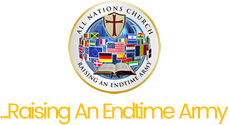- January 22, 2016
- Posted by: Admin
- Category: Uncategorized

A Brief Guide to Getting Involved:
To become a community leader, one must possess many intangible characteristics. Chief among these are a sense of civic duty, a perspective pointed toward the greater good, and a deep-seeded will to be a positive force in the world. But what of those people that have these qualities but can’t figure out a way to harness them? What of those conscientious souls who wish to take on a larger role in their community but don’t quite know how to accomplish that? Pastor Courage Igene is a pastor, motivational speaker, and author, who has harnessed these skills to become an active member of his Richardson, Texas community. He took the time to provide a list of avenues of action such people can take, in ascending order of level of required commitment and magnitude of responsibility, to work towards becoming a community leader:
Get to Know the Neighbors
A good first step is to become acquainted with those living in the neighborhood. Pastor Courage Igene states that the simple act of introduction is friendly and signals a willingness to engage with the people that share similar local concerns. Introductions can lead to conversations, and conversations can lead to friendships. Being on friendly terms with the neighbors can yield benefits that range from the borrowing and lending of lawn equipment to planning a neighborhood softball game or block party. If the local situation merits it, participating in the neighborhood watch — or forming one, if one does not already exist — is an excellent way to serve a community for the better.
Attend Local Services
For those of a religious ilk, an excellent way to raise one’s profile in the community is to attend local services. No matter the religion, creed, sect, or denomination, gathering weekly with others who share your belief-system is a time-tested way to get to know new people and foster good relations within the community. Pastor Courage Igene explains that oftentimes, within the structure of a church, mosque, temple, or synagogue, there are other roles which may require filling — choir member, children’s educator, accompanying musician, treasurer, board member, and the like. If the opportunity arises, consider offering to assume one of these roles. If public speaking isn’t an issue, consider reading a passage of scripture aloud to the worshipers every now and then.
Join a Club or Leisure Organization
For those who do not consider themselves religious, a secular alternative is to join a club or leisure organization. In towns and cities across the country, there are private social clubs dedicated to everything from sports and recreation to science and the arts — there are country clubs, book clubs, ski lodges, fan clubs, wine tasting clubs, historical societies, and hobby enthusiast organizations of all kinds. In short, no matter where one’s interests lie, there is likely a club for it. All that is without even mentioning the well-known, chapter-based charitable organizations such as the Kiwanis Club, Freemasons, Rotary Club, and the International Order of Odd Fellows. Joining a local club or leisure organization is an excellent springboard from which to form relationships with other members of the community.
Volunteer
Care to bypass all that socializing and go straight to making the community a better place to live? Care to lead by example and actually make an impact on the lives of others in your immediate geographic vicinity? The answer is easy: volunteer your time and labor. As with leisure clubs, there is a nearly-endless choice of not-for-profits that are always recruiting new volunteers — everything from public schools and libraries to homeless shelters and advocacy groups.
Run for Local Office
For those who strongly desire a leadership role in their community, Pastor Courage Igene says there is always the act of running for local office. Winning a seat on the local school board or the town council is about the most direct route to community leadership there is and presents the opportunity to affect the most change of any suggestion on this list. It is often said that ‘local government is the only government that matters’, and the reasoning behind this axiom is sound. Local government deals with important issues such as community planning, trash pickup, public transportation, local business relations, and road repair. Deciding how best to spend taxpayer money raised from the community in order to best serve the community is the ultimate act of leadership and public service.
